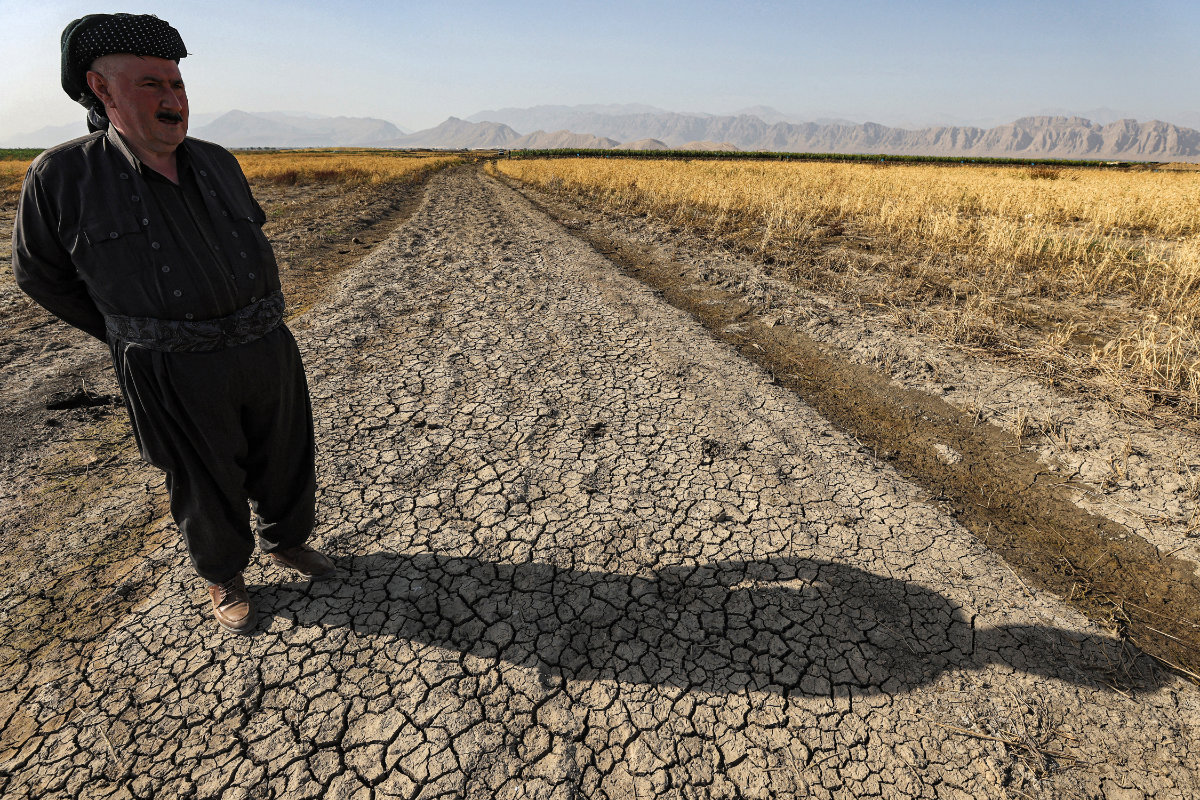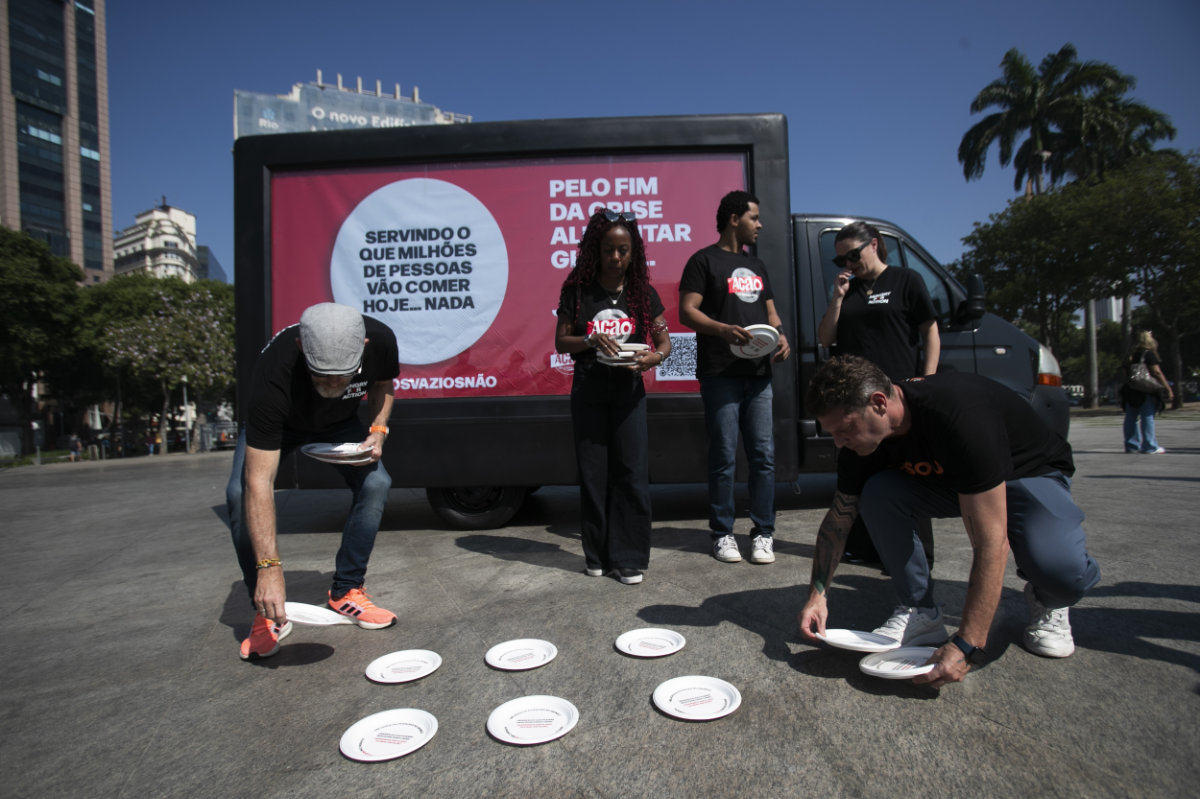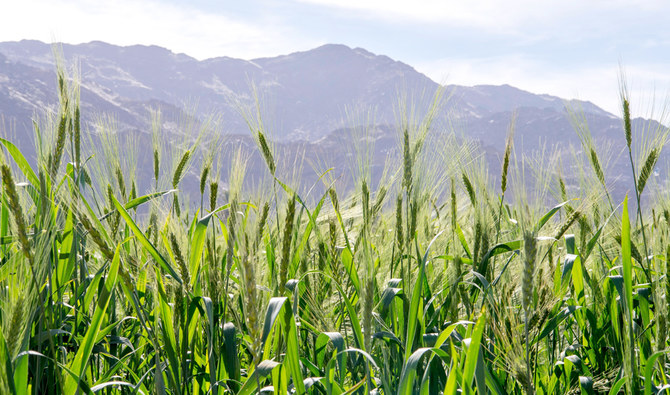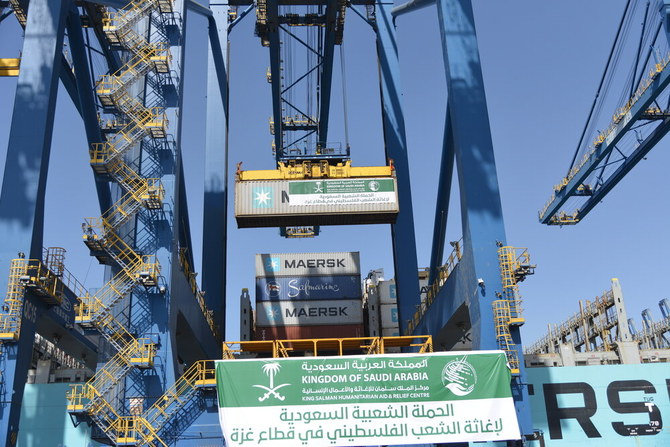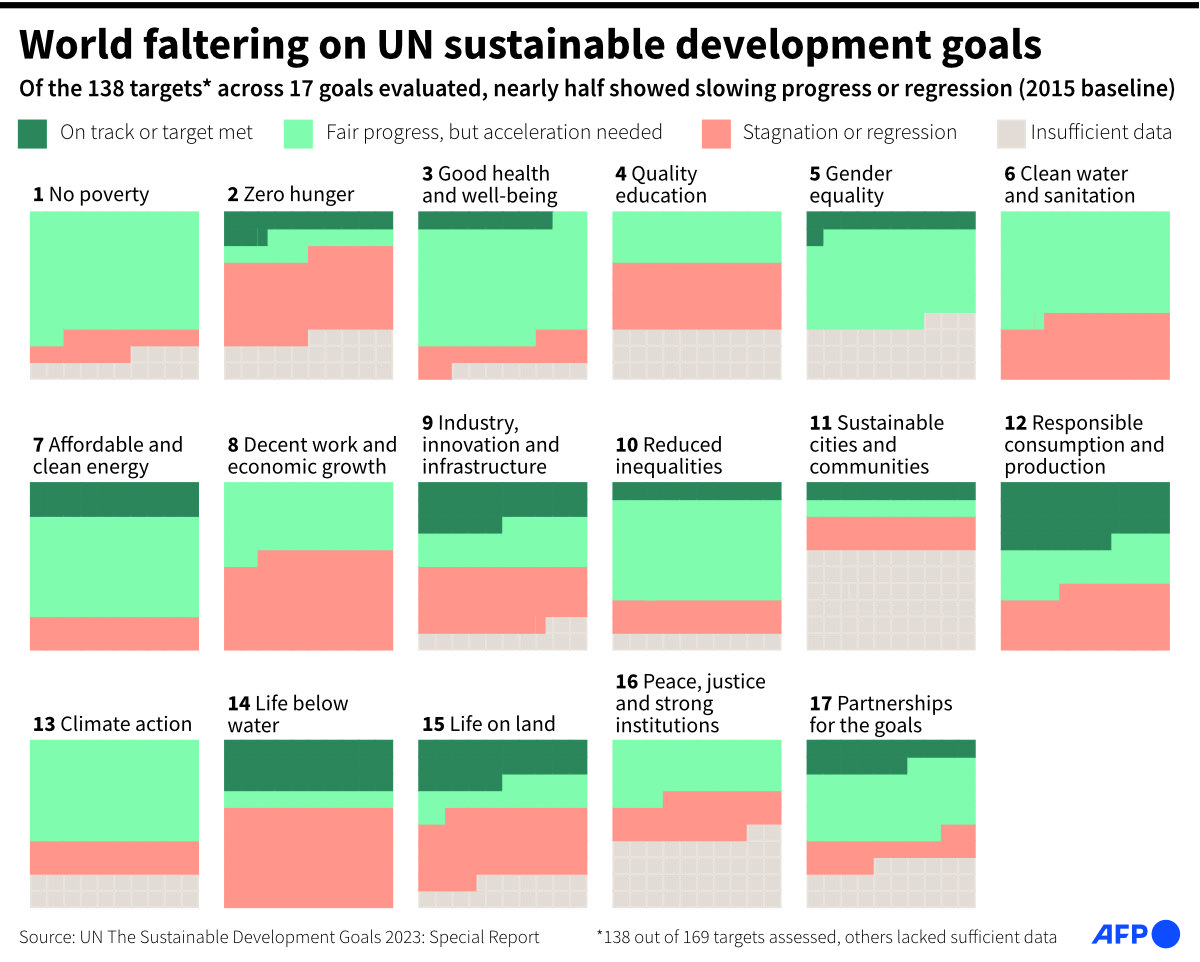DUBAI: Muammar Qaddafi’s capture and killing by rebel fighters near his hometown of Sirte on Oct. 20, 2011, failed to usher in the era of stability and democracy that Libyans had hoped for when mass protests erupted earlier that year.
Instead, despite the best efforts of the UN Support Mission in Libya, the country remains deeply insecure, divided by two rival administrations, and fragmented among a plethora of armed groups vying for control.
“The fracturing of the Libyan body politic, with the emergence of dual governments and empowered militias, has posed perhaps the most significant challenge,” Hafed Al-Ghwell, a senior fellow and executive director of the North Africa Initiative at the Foreign Policy Institute of the Johns Hopkins University School of Advanced International Studies, said in a recent op-ed for Arab News.

Efforts by the Arab League and African Union did little to help UNSMIL bring about elections and national reconciliation. (AFP/File)
“An enduring stalemate remains underpinned by a lack of consensus on constitutional and electoral frameworks, deepened by the entrenchment of local and international stakeholders in the status quo.”
Libya is split between the UN-recognized Government of National Accord of Prime Minister Abdul Hamid Dbeibah based in Tripoli, which controls barely a third of the country, and the Government of National Stability of Gen. Khalifa Haftar based in Benghazi.
The latest effort to bridge this divide culminated in the creation of a joint committee by the House of Representatives and the Government of National Unity-aligned High State Council, which aimed to pave the way for national elections. These, however, are still yet to take place.
A meeting in Cairo under Arab League auspices in March and efforts by the African Union to organize a national reconciliation conference in early February also did little to help UNSMIL bring about elections and national reconciliation.
“Rapidly evolving from a need to stabilize post-revolution Libya into addressing deep-seated political divisions and external interference, (the UN’s) mandate has consistently proven ill-suited to the complexities of the Libyan context,” said Al-Ghwell.
Opinion
This section contains relevant reference points, placed in (Opinion field)
“It has devolved into merely managing failure, rather than being a well-orchestrated attempt at resurrecting democratic governance in a post-Gaddafi Libya.
“Its emphasis on mediation and political dialogue, while noble, has failed to account for the leverage that will be necessary to fully enforce ceasefires, manage the transition to governance or curb the influx of arms and mercenaries bolstered by self-interested external meddlers.”
On April 16, Senegalese diplomat Abdoulaye Bathily tendered his resignation as the UN’s special envoy for Libya, saying he was unable to support the country’s political transition while its leaders continued to put their own interests above finding a solution.

In western Libya, prominent militias engage in their own state-sanctioned activities. (AFP/File)
“Under the circumstances, there is no way the UN can operate successfully. There is no room for a solution in the future,” Bathily said in a statement at the time, announcing the delay of a national reconciliation conference originally scheduled for April 28.
“The selfish resolve of current leaders to maintain the status quo through delaying tactics and maneuvers at the expense of the Libyan people must stop.”
As the country’s finances are split between the two governing powers, which are backed by competing foreign players, the matter of their legitimacy in the eyes of Libyans and the international community remains an issue.
Foreign involvement is arguably the main reason why Libya has been unable to move on and establish a unified, stable administration. By sponsoring their preferred side in the conflict, experts say external actors have periodically added fuel to the fire.
Indeed, experts believe Libya has become little more than a playground for competing foreign interests, with the spoils of war — oil, arms contracts, and strategic influence — up for grabs.

Gen. Khalifa Haftar of Government of National Stability. (AFP/File)
To further these aims, various outside interests have sponsored militias inside Libya, thereby compounding and prolonging the fragmentation of the nation’s security apparatus.
Haftar commands the Libyan Arab Armed Forces, also known as the Libyan National Army. Although multiple armed groups serve under its banner, many operate under their own command structures and engage in their own raids and patrols across eastern Libya.
Meanwhile, in western Libya, prominent militias such as the Stability Support Apparatus, Misrata Counter Terrorism Force, Special Deterrence Forces (known as Radaa), 444 Brigade, 111 Brigade, Nawasi Brigade, and Joint Operations Force engage in their own state-sanctioned activities.
These include intelligence gathering and surveillance, street patrols, border security, and overseeing migrant camps.

Mohammed Younes Al-Manfi, the chairman of the Libya Presidential Council. (AFP/File)
“In today’s Libya, armed groups are the only entities capable of projecting power and maintaining territorial control,” Jalel Harchaoui, an associate fellow at the UK-based Royal United Services Institute, told Arab News.
“These groups lack a limpid chain of command and do not always follow the authority of the central state or manage their personnel in a clear and organized manner. They are inherently informal, often flawed, and dysfunctional.
“Despite their shortcomings, they are powerful when it comes to controlling territories and using force.”
Although these armed groups have been tasked with improving the nation’s overall security situation, they frequently clash with one another. This violence has shown little sign of abating, despite international efforts to establish a unified government and security apparatus.
Fifty-five people were killed in August 2023 when Radaa and the 444 Brigade engaged in running street battles in Tripoli. In February this year, at least 10 people, including members of the SSA, were shot dead in the city.
During this year’s Eid Al-Fitr celebrations, clashes broke out in the capital between the SSA and Radaa militias. Although this most recent bout of violence incurred no casualties, it raised fresh concerns about the country’s perilous security situation.
While the humanitarian situation in Libya has somewhat improved since the UN-facilitated ceasefire agreement of October 2020, civilians continue to bear the brunt of political and economic instability.

Libya is split between the UN-recognized Government of National Accord in Tripoli and the Government of National Stability of Gen. Khalifa Haftar based in Benghazi. (AFP/File)
Militia skirmishes have resulted in the internal displacement of some 135,000 people. Another 300,000 are in need of humanitarian assistance, according to UN reports from 2022.
The dire humanitarian situation was made worse by the devastating storm that pounded the Libyan coast in September last year. Storm Daniel burst two dams in the eastern city of Derna, with the resulting torrent of water flattening everything in its path.
The storm killed at least 5,900 people and displaced more than 44,000, according to the US Agency for International Development.
“Achieving stability in Libya requires a long-term strategy that would take many years and involve significant commitment from key foreign states,” said Harchoui.
“This would demand dedication and the willingness of countries like the US to challenge their regional partners, such as Turkiye, the UAE, and Egypt. It’s a major undertaking by all means.”
The SSA and Radaa are not under the direct authority of Libya’s interior or defense ministries. Nevertheless, they receive public funds and operate independently under a special status granted in 2021 by the prime minister and the presidential council.
Armed groups in Libya are often accused by the UN and human rights groups of committing war crimes with impunity. A report published by the UN last year found that these militias had engaged in murder, rape, arbitrary arrest, and slavery.
A 2023 report by Amnesty International also found that groups like the SSA, LAAF, and several others had committed acts of sexual violence, abductions, mock executions, and had restricted freedom of expression.
Libyan civilians have no power to hold these groups to account — particularly those backed and legitimized by the state.

Prime Minister Abdul Hamid Dbeibah. (AFP/File)
An initial step toward achieving stability, Harchaoui believes, is recognizing that armed groups have infiltrated government institutions to become integral parts of the Libyan state and are “increasingly involved in corrupt and illegal activities.”
He said: “Tackling corruption should therefore be the initial focus, as this would slow the expansion of armed groups into areas beyond physical security, like government administration, finance, oil, and wealth extraction writ large.
“Once corruption is addressed, further steps can be considered.”
There are, however, multiple factors behind the Libyan military’s inability to rein in the country’s many armed groups.
Chief among these is that Libya’s “political leaders, economic institutions, and foreign states still need the protection of these armed groups for day-to-day operations,” said Harchaoui.
“This protection is needed for activities like oil production, diplomacy, contract signing, and counterterrorism intelligence gathering.”
These operations, he says, allow these groups to become more entrenched and powerful — and, in turn, make it more difficult to reduce their influence.
“This paradox means that continuing to rely on these groups for daily operations only strengthens them, preventing the ultimate goal of replacing them with formal forces some day in the future.”

Foreign involvement is arguably the main reason why Libya has been unable to move on and establish a unified, stable administration. (AFP/File)
There were some green shoots of change in July 2023 when the two rival administrations agreed to set up a committee to oversee the sharing of Libya’s significant oil revenues.
In a statement at the time, UNSMIL said it “welcomes the decision announced by the Presidential Council to establish a High Financial Oversight Committee to address fundamental issues of transparency in the spending of public funds and fair distribution of resources.”
Nevertheless, far from emerging from the Qaddafi era with greater openness, economic growth, and productive engagement with the international community, Libya continues to endure lawlessness and institutional collapse, becoming something close to a failed state.















